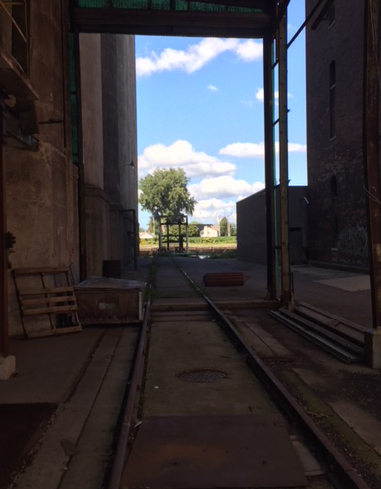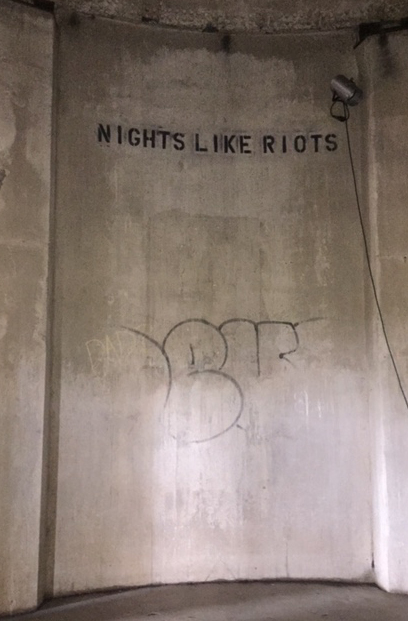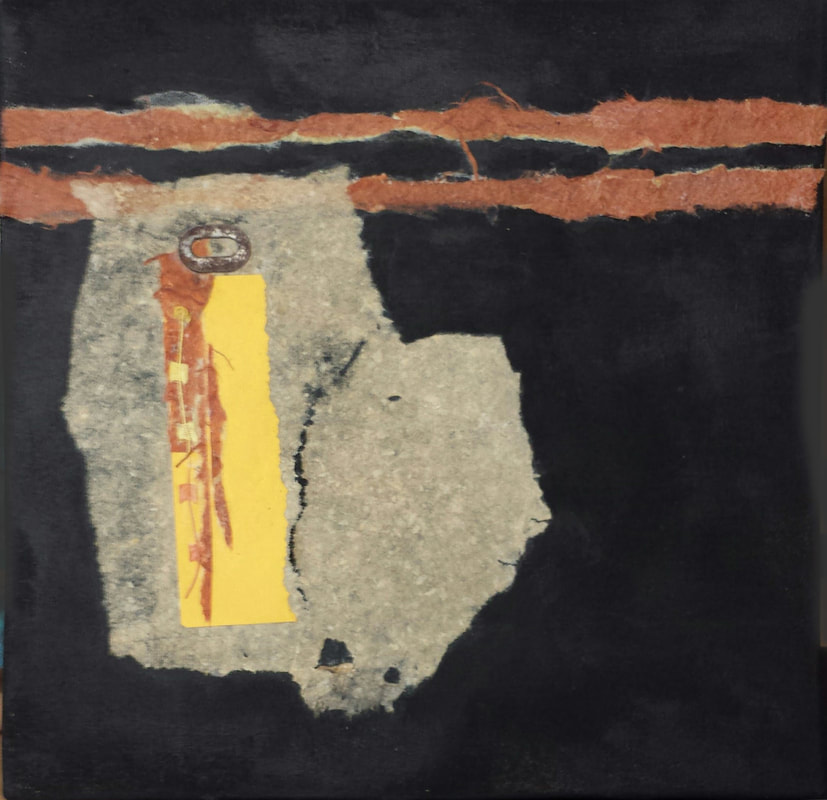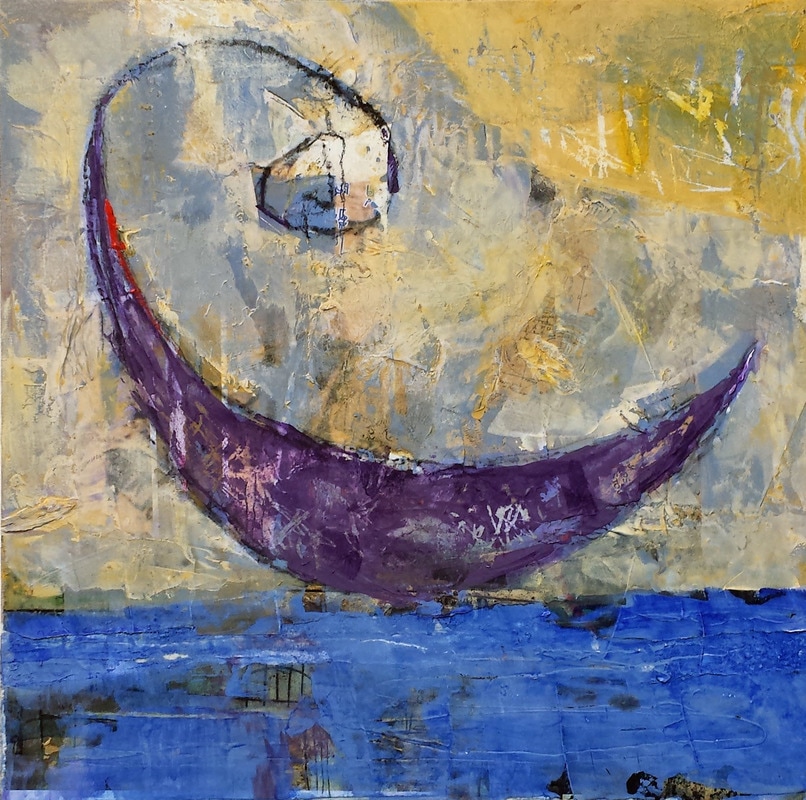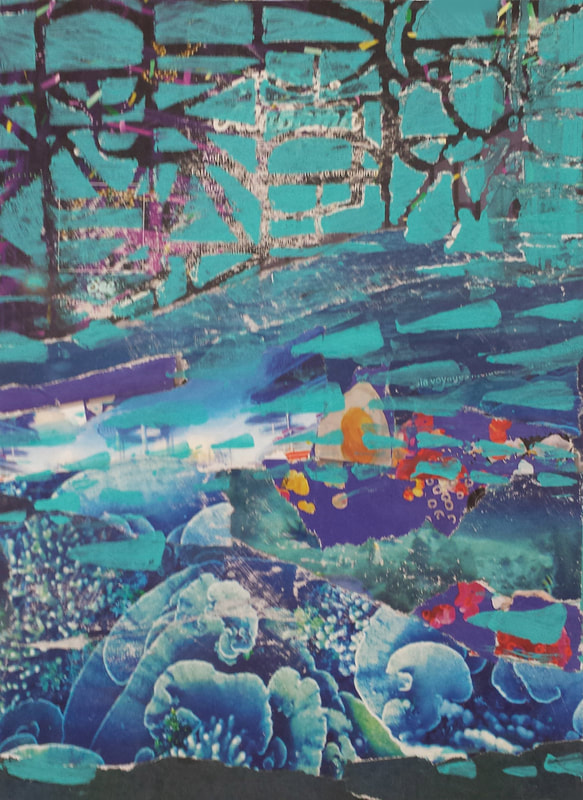There is an application that’s been on my desk for a few weeks now. How to Obtain Certified Copies of Stillbirth and Fetal Death Records. I’m intimately familiar with it at this point, yet, I am taken aback each time I read those words. It tells me to send in $24, and an archive database will be searched all the way back from 1905 to the present. I write out a check and tuck it inside an envelope with the form. The stiff, white paper feels cool and reassuring between my fingertips. I rip the security strip from the back, press the sticky flap shut, then add two small pieces of scotch tape for added protection. In my left-handed scrawl, I spell out “California Department of Public Health Vital Records” with the street address underneath as neatly as I am able.
Walking to the mailbox, my throat tightens. I grasp the envelope as if it could speak the answers I seek, and I almost don’t want to let it go. It’s been thirty years. Back then all I wanted to do was forget, now I burn with the need to know specific details that I’d long ago buried. I wanted that certificate, I wanted something tangible. On one hand, I felt concerned there would be no record, on the other, I was certain that would not be the case. I had been in the hospital, I had given birth, I had named my daughter, surely there had to be documented evidence of that.
I stand at the bank of mailboxes for a minute, breathing in the hot, heavy air. Summers in Las Vegas can be suffocating. I place the envelope in the slot and turn toward home.
~
It is 1988, and I remember clearly various parts of that day, although I cannot for the life of me recall the actual date. By the time I hoisted myself out of bed, Doug, my husband at the time, had already left for work. I stared out the bedroom window taking in the view. Our rented apartment outside of San Diego overlooked the Escondido freeway; it was perched high enough atop the hillside that any traffic below was out of earshot. Coastal sage scrub, tipped brown at the edges from the sun, hugged the landscape, which was punctuated by big gray boulders situated just so between the multitude of sprawling ranch style houses. Southern California’s version of a modern-day Fred Flintstone’s Bedrock. I looked down, rubbed my stomach, “We’ll be living in one of those houses someday. Or better yet, at the beach.”
In the kitchen I made toast, eating it quickly and washing it down with Diet Coke. After showering, I wrestled with my impossible hair. Roseanne Roseannadanna, the similarly coiffed character played by Gilda Radner on Saturday Night Live had nothing on me. The humidity made my hair look twice as big, all ringlets and frizz. No amount of Aqua Net could contain it. I pulled on the maternity jeans I’d bought long before I’d actually needed them, walked to the full-length mirror turning sideways to admire the burgeoning bump, slipped on ballet flats and a light sweater, grabbed my car keys and drove ten minutes to the doctor’s office. There was no reason to think this would be anything other than a routine ultrasound.
“All right, let’s take a look,” the technician said once I’d been ushered back to an exam room. “I should be able to see if this little one is a boy or girl. Would you like to know?” I jumped slightly as she squirted thick, cold conducting gel on my exposed belly, lowered the paddle and began moving it around trying to locate the necessary measurements and appendages. Before I could answer, she removed the paddle, stood up and said, “I’ll be right back.” I lay there, bewildered. Goopy liniment adhered the paper drape to my stomach.
Thirty seconds later Dr. Maresh opened the door, his nurse following behind him. Babies need amniotic fluid to develop he explained. Pinprick leak, extremely uncommon he said. Maybe fluid could replenish he said. Go home and don’t move, UCLA specialist consult, he said.
“Can you tell me the last time you felt any activity?” he asked.
Oddly, I couldn’t. Was it not that very morning as we gazed out the window? All I could think was, no way am I losing this baby.
~
My own mother had a precarious relationship with pregnancy, having several miscarriages both before and after delivering me, my older sister Chelle, and our younger sister Margi.
“Ech, that doctor, what did he know?” She’d tell me. “Had I listened to him Rochelle would be an only child. What’s meant to be is meant to be. Sure, I had you three months early but I looked you over and you had all your fingers, all your toes, you even had eyelashes. That’s when I knew you’d be okay. Well, except for your eyesight, but that was from being in an incubator so long.”
~
That very night, shortly after Doug got home from work, I went into labor. Perched in a sterile birthing bed, I’d felt uncharacteristically small wrapped in a maternity gown large enough to cover the extended abdomens of full-term mothers-to-be, the pregnant equivalent of one-size-fits-most. Splashed with pastel-colored baby animals, perhaps the garment was meant to evoke a gentleness, a last sense of calm before the mayhem of parenthood set in. A fetal monitor stood next to the bed, although I am not sure if it was hooked up to check my progress, or silent of the typical blips and beeps that happened with routine deliveries.
Labor was not the physically painful experience I saw in the movies. Mine didn’t hurt. Instead, deep down my abdomen churned with little pricking sensations, coming closer and closer together until one was almost stepping on the other. I knew from reading What to Expect When You’re Expecting, this meant it was almost time. I dug the heels of my feet deep into the stirrups attached to the bed, thinking this might stop my knees from knocking together with the shivers. “I don’t think I want to do this right now,” I said, as if I were about to cancel an appointment for a pedicure instead of bring a human being into the world.
The nurse, who had her hand between my legs checking my cervix, interrupted my trepidation. “I think we’re ready. What I want you to do is push on my command. Can you do that?”
I nodded my agreement. I do not recall what my husband was doing. Was he holding my hand? Was he worried? Nor do I remember if there was a doctor in the room.
“Okay sweetheart,” I heard. “Here we go. One, two three, PUSH!”
My body expelled my daughter as if she were a splinter. There was no robust cry. Afterward, only the insistent, albeit well-meaning nurse trying to shove a dead baby into my arms, smiling forcefully while attempting to push her agenda. “Go on sweetheart, hold her, look at her. It’s the only chance you’ll have and if you don’t you’ll regret it.”
What the hell did she know of my regret? Was she the one who had just given birth to a lifeless newborn? Had she been forced to name it, the mandate of some California state law that had me cursing the lawmakers, all of whom (I imagined in a rare fit of condemnation) were men?
I caught a glimpse of Madeline’s red, shriveled form but I refused to look at her. Someone offered a Polaroid. She’d been wrapped in a pale yellow and white crocheted blanket from the Women’s League, which was meant to be a celebratory keepsake. They took her away, and left the photo on a table near the birthing bed, as well as the blanket, which now hung limply across my barren stomach. I regarded both with the same welcome I’d reserve for a rabid dog. I picked up the blanket between my thumb and pointer fingers as if it contained a deadly virus, then flung it into the trashcan next to the bed. Turning my head, I whispered to my equally dazed husband, “Let’s get out of here.”
“Sue, you have to sign your release paperwork first.”
There are no words to describe what it is like going into the hospital pregnant, and leaving empty-handed. “I want to go home.” And with that I stood up, wobbled slightly, grabbed my maternity pants and pulled them on as tears streamed down my face.
~
“Hey, Doug. Thank you so much for calling me back. So, this might sound weird after all these years, but I need to find out what happened the night we lost the baby. Like, am I remembering it right? I sent away for a stillborn certificate but they couldn’t find anything for her, and I was wondering if—”
“That’s bullshit!” he said. “She was born in a hospital. How could there be no record of that?”
“Well, there could have been a misspelling on the hospital paperwork we didn’t catch at the time, or the laws of reporting might have been different then. It was a long time ago. It doesn’t make sense to me, either. But they can’t find her.”
I explained the extent of my detective work. How I’d sent three separate applications to the State of California, as well as San Diego County and they all came back with nothing. Then I called the doctor’s office, but Dr. Maresh had retired. I tried the new Palomar Hospital, where he typically sent his patients, because the old one wasn’t there anymore, and I even called several funeral homes in the area.
“Everyone was really nice for the most part but no one keeps records from that long ago. They looked me up anyway, though, just to see if they could find anything, but no such luck. I was hoping you’d be able to fill in some of the blanks. Do you remember any of the details, do you remember anything at all?”
“We were young, Sue, and we were traumatized, you know? I mean, that hurt us. They wanted us to love on this dead baby. They had her all swaddled up, I remember that. I remember we cried together. I didn’t want to hold her. That was tough, man.”
“Do you remember me telling you about what the doctor said when you came home from work that day? Do you remember what car we took to the hospital?”
“I had that black Scirocco. We didn’t get the Jetta until later. Then that damn car got stolen before we even made the first payment!”
“Yep, found it down in Mexico,” I said. “I can’t remember how we spelled her name. Or the date, or how far along I was.”
“We spelled it like Madeline Kahn, the actress. M-a-d-e-l-i-n-e.”
“Oh, right, how could I forget that? I was thinking like Madolyn Smith from Urban Cowboy.”
“And you were twenty-two weeks. But I don’t know the date. It was a long time ago. We were young. We were traumatized. We cried about it together. We did,” he said.
It was hard for me to envision us being close enough to grieve together. I had loved him once, but the divorce and subsequent years afterward had been contentious, and while time had softened that, nowadays we hardly had any interaction. The fact that Doug was willing to contact me back and able to validate my recollections gave me solace, and I felt a stab of grateful softness for a past that, until this very point, had been tainted with hurt feelings. He was the only person on the planet with whom I shared the experience, and there was solidarity in the fact he had almost the same blanks and the same certainties from that night as I did. That was more than enough closure for me.
~
When I am asked how many children I have I always say two. But that is not true. Max was born in 1989, Jake followed in 1990. The boys were ten and eleven when they found out they’d had a sister. We were coming home from seeing the movie, My Dog Skip, when Jake said out of nowhere, “When we were with Dad last weekend he said we had a sister and her name was Madeline. Mom, is that true?” It had never occurred to me to tell them.
Madeline was born sometime in the spring of 1988. I don’t know if she ever showed signs of life outside the womb, although I doubt it. I don’t know for certain what hospital I was in when I had her. I don’t know how there could not be a record documenting her existence, however fleeting it was.
What I do know is she was loved. I held her in my body for over five months and her loss was so enormous it took me thirty years before I could face it.
I am the proud mother of three children. I’ll carry all three in my heart until I take my last breath.
Suellen Meyers is agoraphobic, and not afraid to talk about it. Currently, she is obtaining an MFA in Creative Nonfiction from Bay Path University. She writes true stories about family involving themes of loss, addiction, anxiety, agoraphobia, and resilience. Her work has also appeared in The Manifest-Station. She lives in hellishly warm Las Vegas, Nevada, with her husband Gary, Zoey the Elf Dog, and new addition to the family, Abby the Wiggle Butt. Contact her at https://www.suellenmeyers.com/

